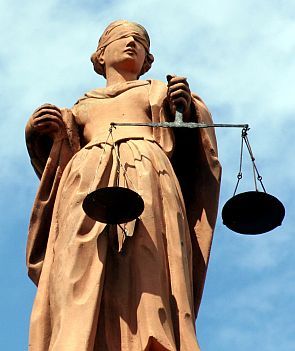 The United Progressive Alliance government’s efforts to rein in the judiciary may come unstuck as its ambitious bill scrapping the collegium system of appointing judges to the Supreme Court and high courts as the Bharatiya Janata Party is unlikely to allow the passage in the ongoing Parliament session.
The United Progressive Alliance government’s efforts to rein in the judiciary may come unstuck as its ambitious bill scrapping the collegium system of appointing judges to the Supreme Court and high courts as the Bharatiya Janata Party is unlikely to allow the passage in the ongoing Parliament session.
While this Bill has hit a roadblock, another legislation providing for greater accountability of the judiciary has been pending in Parliament for nearly two years now.
The Judicial Standards and Accountability Bill, which provides a mechanism for investigation against judges has been passed in Lok Sabha but is still awaiting passage in the Upper House.
Even as this Bill is in cold storage, Law Minister Kapil Sibal introduced another Bill in the Rajya Sabha last week, giving the executive a say in the appointment and transfer of judges.
The Bill is slated for discussion on Monday but the opposition, more specifically, Leader of Opposition in the Lok Sabha Sushma Swaraj is not in favour of passing it in a rush.
She has suggested that the Bill should first be referred to the parliamentary standing committee for greater scrutiny.
The law minister has held a series of consultations with BJP leaders to persuade them to pass the Bill next week but, so for, Sushma has refused to relent.
Surprisingly, her counterpart in the Rajya Sabha Arun Jaitley has no reservations about passing the legislation in this session itself but he has to defer to the party’s decision. In fact, Sibal had consulted Jaitley when he was working on the Bill and had even accepted the opposition leader’s suggestions in the final draft.
The passage of the constitutional amendment Bill has acquired urgency as it has been introduced at a time when relations between the ruling coalition and the judiciary are not particularly cordial.
Battling a major economic slowdown, UPA ministers have privately blamed judicial activism for turning away prospective investors.
They cite the court’s decisions on the cancellation of 122 telecom licences in the 2G case and the ban on mining as a few examples which had hit investor confidence.
“Why would anybody invest in India when there is no guarantee that his project will not be scrapped by the courts on some pretext or the other,” said an exasperated UPA minister.
Upset with the judiciary, the government had this week negated a recent Supreme Court order that those in jail cannot vote and hence are not eligible to contest elections.
Endorsed by parties across the political spectrum, the Rajya Sabha gave its consent to the amendment to the Representation of the People Act to state that a person in detention cannot cease to be a voter or become ineligible for contesting elections.
Although the judiciary had resisted the UPA government’s move to bring such a bill, the Centre had gone ahead with it. The Bill provides for the constitution of a Judicial Appointments Commission, which will be mandated to recommend appointment and transfer of judges in the Supreme Court and high court.
The Commission would replace the present collegium of judges presently entrusted with this responsibility.
India is perhaps the only country in the world where judges are appointed by fellow judges. This Bill would give greater say to the executive in the appointment of judges.
The government, however, maintains that the Bill is aimed at bringing in greater transparency and accountability in the selection of judges.
According to the provisions of the Bill, the proposed Judicial Commission headed by the Chief Justice of India would be constituted for the appointment and transfer of judges.
The panel will also include the law minister, two senior-most judges of the Supreme Court and two eminent persons and secretary (justice) in the law ministry.
The two eminent persons will be selected by a committee comprising the Prime Minister, the Leader of the Opposition of either House of Parliament and the Chief Justice of India.
According to the statement of Objects and Reasons of the Bill, the legislation “would enable equal participation of judiciary and executive, make the system of appointments more accountable, and thereby increase the confidence of the public in the institutions."
The Judicial Standards and Accountability Bill provides for the introduction of a mechanism to enquire into complaints against judges of the Supreme Court and the high courts.
According to the government, this Bill would strike a balance between maximizing judicial independence and laying down accountability for the members of the higher judiciary.
However, this Bill also came in for some criticism as it includes a provision restraining judges from making “unwarranted comments” against the conduct of any constitutional authority. According to the Bill, any judge who does so would liable for “judicial misconduct.”









